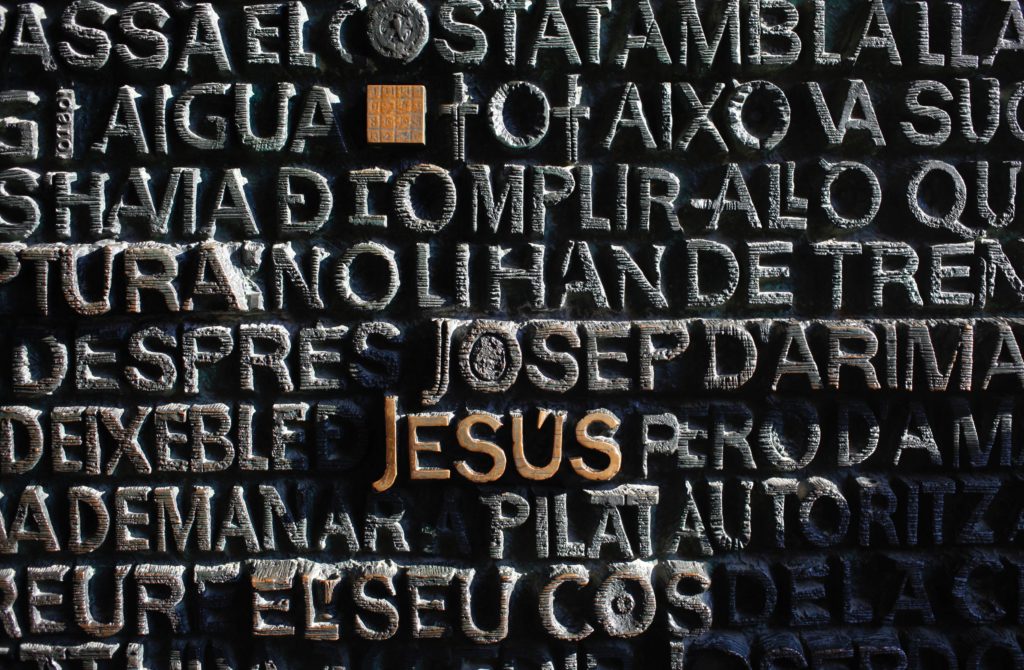Last Sunday after Pentecost
Matthew 25:31-46
The Rev. Canon Marianne Wells Borg
Today is Christ the King Sunday. It is a feast day. A celebratory day. And it is practiced in churches all over the world. The Roman Church calls it The Solemnity of our Lord Jesus Christ, King of the Universe. The Australian church uses the non-gendered Reign of Christ. Protestants call it Christ the King. It is always the last Sunday of Ordinary Time, the last Sunday of the season of Pentecost, the last Sunday of our church year. Which is this Sunday. Today is Christ the King Sunday.
I don’t want this feast day to go by without giving it a second thought.
History of Christ the King Sunday
First, Christ the King Sunday wasn’t instituted until 1925. We can safely say it is a late development. A very late addition to the tradition. It was initiated by Pope Pius XI. And it was a response to growing secularism in the aftermath of World War I. Pope Pius XI wanted to name Christ the King to remind Christians that our allegiance is to a spiritual ruler, in heaven, as opposed to any earthly supremacy. And that true peace can only be found under the Lordship of Christ, the Prince of Peace, whose power is given him by God the Father in heaven.
Now that might sound well and good to us. But what this presumes is the three-story universe of the ancient world. God is in the heavenly realm. Where true power and promise reside. And where our true future rests. Earthly rule is no match for our spiritual ruler and our allegiance does not reside here anyway.
Implicit in this storied universe is that God and Jesus, Jesus King of the Universe, will come down when the end is at hand and tidy up the mess. Early Christian communities believed that. And they believed the end was coming soon. They were wrong. I don’t want us to make the same mistake. Not only because it is a faulty notion but because such a belief can legitimate passivity and keep ourselves from the spheres of politics and economics. Exactly what an opposing empire would want. There is something about our belief that God will come and save us from ourselves that keeps us from taking full responsibility for our life and our world. I don’t understand this about us. But it is a potential weakness of Christianity that I think would make Jesus shudder. What I understand because of Jesus is the difference we can make. Here. Now. I will return to that in a moment.
I also wonder if in our tacit approval of a three-story universe we continue to support a hierarchy of value.
Certainly, the ancient world held fast to a hierarchy of value and power. The language of Jesus’ day reflected imperial language and imperial authority. It was language of kingdoms and kingship. And Christ the King is imperial language.
That’s so ironic! Because the message and actions of Jesus, his vision for the world, were antithetical to imperial authority and structures of domination. Jesus had no intention of being a king or a substitute for Caesar. He didn’t want to run the show he wanted us to change it.
But we use imperial titles for Jesus all the time. In Jesus’ day Caesar boasted supreme title for himself. Son of God, Lord, Savior, Bringer of Peace, Messiah. Those were titles for Caesar. After Jesus’ death the early Christian communities decided to claim those titles for Jesus. Jesus was Son of God, Lord, Savior, Prince of Peace, Messiah.
And to make Jesus’ supremacy certain, the early church councils insisted upon the divinity of Jesus. He was One with the Father. Sitting at the right hand of God. Jesus was King of Kings, and Lord of Lords. His the scepter, His the throne. His the victory alone.
This confession of faith was its own kind of loyalty oath. It probably still functions that way today. Claiming Jesus as divine secured his authority over the kingships of this world. And like Pope Pius did in 1925, reminded everyone that our allegiance is to a heavenly or spiritual ruler.
I understand why the early Church did this. But, as I said, it is ironic to say the least. These imperial titles had nothing to do with what the human Jesus of Nazareth was about. Even though his vision of what his followers called the kingdom of God, and his perceived authority and wisdom set him in direct opposition to Caesar and Empire. But to be King? I don’t think so. Not of this world or the next. That was not his agenda.
At the risk of undermining our loyalty oath, I am concerned with our emphasize on Jesus divinity. Orthodox belief says Jesus was fully human and fully divine. But we tend to talk as though it was Jesus divinity that made him great. Also, unique.
Jesus was a human being
For me, the power of Jesus and the power of Jesus for us, is that he was one of us. He was a human being. I don’t know why this makes some of us wince as though we are not giving him his due. As if being a human being is, well, not that great a thing… and God knows, certainly lower than the angels.
To equate Jesus with us, as just a human being, is seen as a diminishment. But I think in exalting Jesus above his humanity we actually diminish ourselves. I see this again and again in how we talk about him and us. Or in how we talk about God and us. We assume separation. God is up. And we are down. Where do we get that? And that… we are not worthy. Where did we get that? Why do we persist in believing this?
Jesus’s capacity for love
It is Jesus’s humanity and his capacities as a human being that we can claim for ourselves. As a human being Jesus shows us our capacity for God and our capacity for compassion, our capacity for empathy and courage and seeing possibilities where there seem to be none, and our capacity for resilience and imagination and heroism and tenderness and healing and transformation and changing the world. Jesus was one of us. He is a real possibility. That is our hope. And who is to say that that hope is not God with us.
I turn to our Gospel for today. For me, the power of our Gospel is that recognize that we are all of equal value. We are all of equal value. And we must treat each other accordingly. Even in a world of strong social boundaries and purity codes and an imperial domination system that was “divinely sanctioned” and large segments of the population were deemed nobodies, even when the culture clearly delineated the worthy and unworthy, this gospel writer, knew that everyone is to be valued, everyone is to be cared for. If the practices in this story were carried out it would have turned that social world upside down. Cultural norms would be far flung. This could be a disaster for the system. Destabilizing at least. Disruptive most certainly. For some at the top, unfair.
There is no doubt in my mind that this realization that we are all of equal value came from Jesus. This imperative, this insistence that human beings matter, all of them, all of us, no matter what your station or situation or how you got there, no matter what the culture says, you matter, this comes from Jesus. And he knew we have the capacity and capability and liberty to provide care even to “the least of these” I am convinced that this vision, this understanding came from Jesus. And his followers came to see this way too. This was the way of the kingdom of God.
It is my conviction that it was because of Jesus’s humanity, not his divinity, that saw this so clearly. And gave him the courage and tirelessness to act. This conviction is also my hope. For all of us.
As a human being, care for “least of these” says the Gospel, and greet the face of God… And as you do not care to “the least of these” you fail to see the face of God.
Our capacity for love
As I was thinking about Christ the King and the importance of the human Jesus and his faith in the human us, I recalled an experience I had some 25 years ago.
I took a year of clinical pastoral education in an acute care hospital in Tacoma, Washington. I was under supervision and functioned as a chaplain. I made regular visits to a woman who had a brain tumor. The tumor was growing quickly. Her capacities diminished little by little and sometimes startlingly. She was on a multitude of drugs. Her face swelled to where she was almost unrecognizable. The rest of her body was withering and powerless. She became non-verbal. I wrote up my experience of being with her as part of a verbatim, a recollection of our visits.
Toward the end of my account I wrote, “God has put a love in my heart for this woman.” I felt it. I cared for her. I had seen her family come and go. I had watched her decline. I truly cared for her.
My supervisor responded: So, God put a love in your heart for this person? Are you suggesting that without God putting love in your heart for this person you would not have had been able to feel that way about her?
A stinging ran through my body I felt like I walked into a swinging door that I thought was moving the other way. I am not prone to blushing, but I know I did. I was actually offended. Startled. Of course, I didn’t mean that without the love of… well… I mean… I mean God put a love in my heart… what did I mean??? I felt confused, unsettled. I numbed out a little. I was embarrassed
What did I mean by “God put a love in my heart for that woman.” It seemed like such a natural thing to say… And I know I have said many similar things since. Is it my way of saying Thanks? Or give God the glory? And what’s wrong with that?
But there was something in the question that rattled my thinking.
Did I believe that it is God who gives us love in our hearts? And without God… without God we are incapable of such caring? That without God we lack morality? This question is as old as dirt. But my own verbatim made me wonder what I really thought.
Did I actually believe that we as human beings are so flawed, selfish, in need of redeeming, in need of well, just about everything, that our love if it doesn’t have the imprimatur of God is not worth all that much? Did I really think that? Believe that? I am actually one of those people who doesn’t believe in original sin! But had I internalized the great stain that we are not enough. Certainly, I am not enough. I know that.
So, do we need God to love one another? Or in loving one another do we come to know God? And can we just love for love’s sake? With or without God?
I think the reason this story came to my mind is that I am seeing in my own responses to this woman in the hospital I recognized the possible consequence of highly exalting Jesus and God in contrast to our being considerably lower than both. This was so internalized in me I didn’t even know I knew it.
The transformation of the world
What I do so love about Jesus is that he shows us our capacities as human beings. And they are great. We are capable of remarkable and wondrous and healing and restorative work. Our vocation, like his, is the transformation of the world to make it a better place for everyone. And we are not only made for the tasks of our day, like Jesus was, we have the capacity to take them on as he did. We are history making beings. We can make the difference.
For me, Jesus’ greatest contribution to the world is his humanity. And our greatest contribution to the world is ours.
I don’t think Jesus wants us to call him King. Or treat him like one. I think he wants us to recognize him as our brother. Our kin. I don’t think for a minute think our love is separate from the love of God. So, we don’t have to wait. God is here. With you. God is here. With us.



